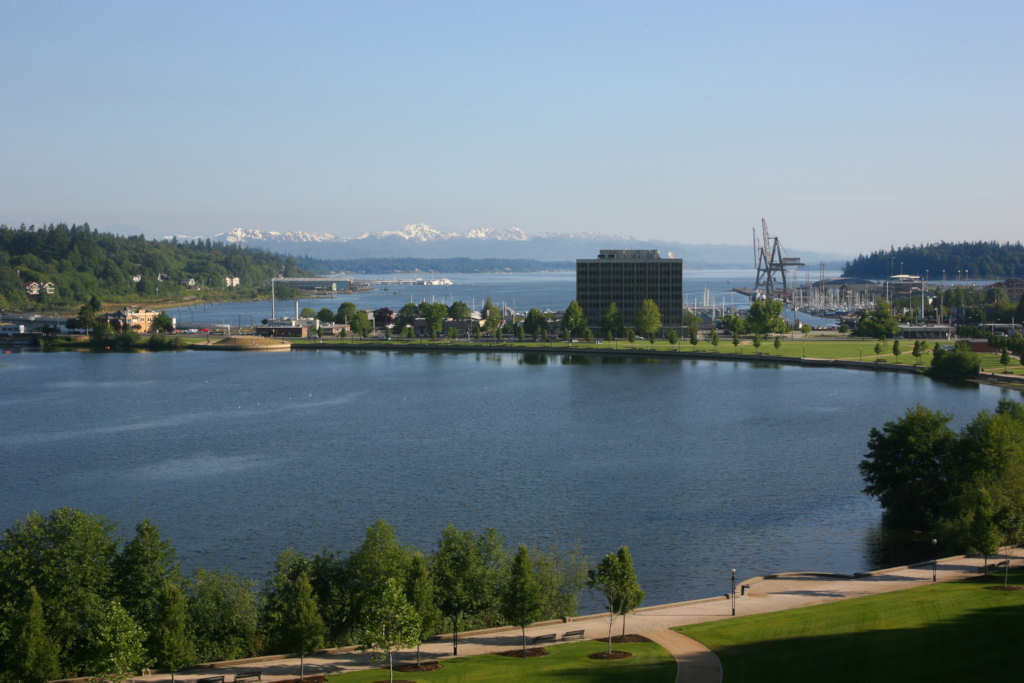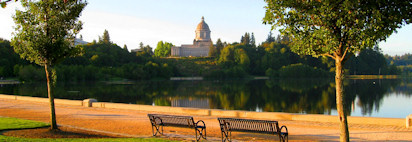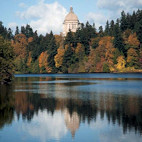Cooperative Community Efforts - Community, Private & Public Partnership
April 1, 2015Initial steps
CLIPA and other organizations take initial steps to work together to make Capitol Lake and the Deschutes Basin work for the entire community. We are working to have the "First Annual Deschutes Urban Watershed and Capitol Lake Shoreline Community Clean Up Day" before Lake Fair and other major summer downtown events.CLIPA plans to make this an annual event to "improve and protect" our urban waterfront for use and enjoyment by current and future generations. Sponsors include Olympia Downtown Association, Thurston County Chamber, Deschutes Estuary Restoration Team (DERT) and Pacific Shellfish Institute. The Washington State Department of Enterprise Services (DES), as the responsible State agency for Capitol Lake, will be assisting.
Ongoing Efforts
CLIPA and DERT representatives will hold a 4th co-operative meeting soon. Previous joint meetings were held in February and March 2015. The goal of these ongoing meetings is to define at least two alternatives for the State Capitol Committee (SCC) to consider for the management of the Urban Deschutes Watershed, including Capitol Lake. Together we will attempt to address water quality, sediment management costs, financing, and community priorities. Our goal is to have a report prepared for the SCC no later than December 2015.
Several areas of agreement were identified in these meetings, as well as differences to negotiate. Teamwork with local counties, cities and land owners to prioritize land use practices for improved ecosystem and water quality is essential.
Many organizational and policy issues can prevent community groups from "agreeing on the next steps". It is possible that we need a "third party independent facilitator" to guide our discussions, report on shared findings of fact, and to outline specific new information (if any) that might be required to develop a specific Deschutes Watershed Improvement Project.
Opinions vs Facts
As we work together, we all need to lay aside "opinions & agendas" and focus on facts & realistic outcome. We will be asking Deschutes Estuary Restoration Team (DERT), our Capitol Lake Improvement and Protection Association (CLIPA) representatives and others to "accept opinions noted as opinions". However if there is a "publicly stated opinion by a community organization representative or a public figure" that creates a fact vs. opinion issue, we will seek to jointly rephrase it as a question. These questions need answers either from a third party expert, or within a technical document that addresses the issue and that is available for review by the community and the State Capitol Committee (SCC) to draw their own opinions.
Examples of this are "letters to the editor" that include statements not supported by the State studies. We will identify those issues, then seek to work with participating groups to prepare and publish a question and answer (FAQ) format to reduce the miss-information that may be intentionally or unintentionally distributed. We look forward to an evolving FAQ method to address real issues. Miss-information claimed as fact is not constructive to a community solution.
OBJECTIVES OF THE COMMUNITY PROGRAM/PROJECTS
- 1) More fish and healthy ecosystem
- 2) Active Public Recreation on the water and the waterfront
- 3) Vibrant Downtown - including
(a) provisions for flood control and inclusion of consideration of the issue of seawater rise impacts;
(b) consideration of impacts on businesses and economic vitality;
(c) support "livability of the downtown area. - 4) Deschutes Watershed Management - both the rural and urban areas
(a) improve/protect water quality in the fresh and marine waters;
(b) ongoing sediment management;
(c) nutrient management; (temperature management) - 5) Long Term Management & Oversight of Watershed;
(a) Established Board/Council;
(b) financing and cost sharing - 6) Support Growth Management Plan for Thurston County
(a) Population projections;
(b) land use/livability strategies - 7) Alternatives defined and supported by CLIPA and DERT that list and identify specific projects required to achieve each of the listed objectives
SHARED SCIENCE AND TECHNICAL FACTS AND REPORTS
- 1) Historical documents for information and use to establish baseline analysis
- 2) Consultant studies used to establish facts and baseline information
- 3) Written Evaluation of Recent Document used to develop alternatives
- 4) Gap Analysis - identify data needs vs data available
- 5) Alternatives Analysis - Alternatives defined by each of CLIPA & DERT for comparative analysis using available State/Local/Tribe/DERT/CLIPA studies in a structured comparison of how each alternative achieves listed objectives.
- 6) Constraints/Challenges to be addressed in Alternatives Analysis including
(a) Physical design/features;
(b) Cost and Economic Impacts;
(c) Regulatory Requirements/Process;
(d) Treaties;
(e) Community Needs and Priorities
(f) Feasibility - 7) Decision Process - Lead by SCC (State Capitol Committee) and Legislature; with involvement of Tribes, Local Government & Community.
NEXT STEPS
- Schedule meetings every 2 to 3 weeks between CLIPA, DERT and other community organizations until there is a draft program with Alternatives Analysis and a list of potential and fundable projects for community discussion and presentation in the decision process. Meetings would be held in evenings as well as daytimes to allow broad attendance.
- DES should provide the Staff Support and third party facilitator. The State Capitol Committee should be asked to assemble the Executive Leadership Group to review, input, and recommend the final Project Plan. The Squaxin Tribes should be invited to participate with the State Leadership Committee.
- A "working task force" with representatives from CLIPA, DERT, local governments, and a representative group of other community organizations should provide the core of the "Community Team" that reviews, evaluates the options, and prepares the working project plan for presentation to the DES/SCC. This task force should meet as required to prepare a draft plan no later than December of 2015.
- Action items for small demonstration projects that will begin the improvements to the watershed are encouraged, such as the Capitol Lake Shoreline Clean up
- The Project area would be divided into three segments - the Upper Rural Watershed (above Henderson Avenue), the Upper Urban Watershed (Henderson Ave to Tumwater Falls), and the Lower Watershed (Tumwater Falls to Priest Point Park)
- Continue to evolve the list of objectives and other parameters as the community seeks a long term management program for the Deschutes Watershed.
- Attempt to frame specific time milestones for plans of actions and for geographical areas. The time frames should start with 2015 legislative session, and then annually over the next several years.
Cooperative Community Efforts - Community, Private & Public Partnership - April 2015
by: CLIPA Capitol Lake Improvement & Protection Assn.CLIPA and other organizations take steps to work together to make Capitol Lake and the Deschutes Basin work for the entire community.


